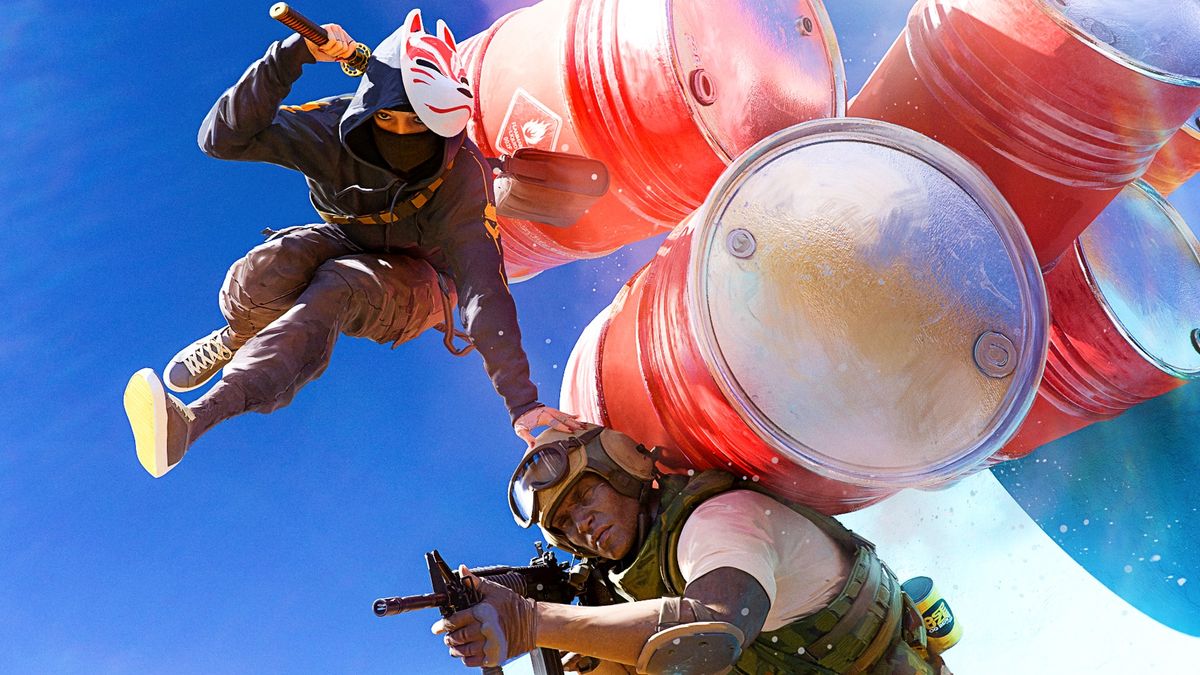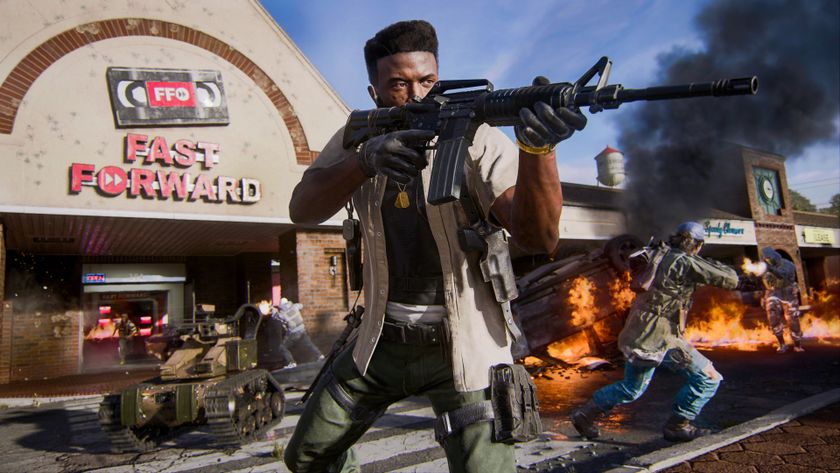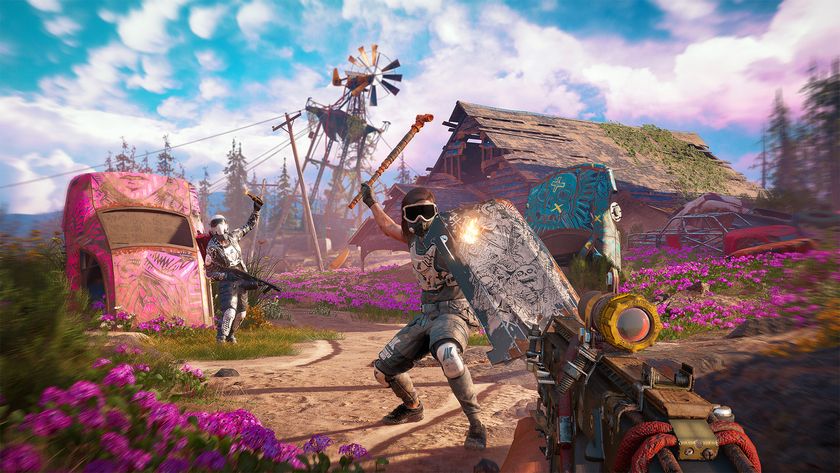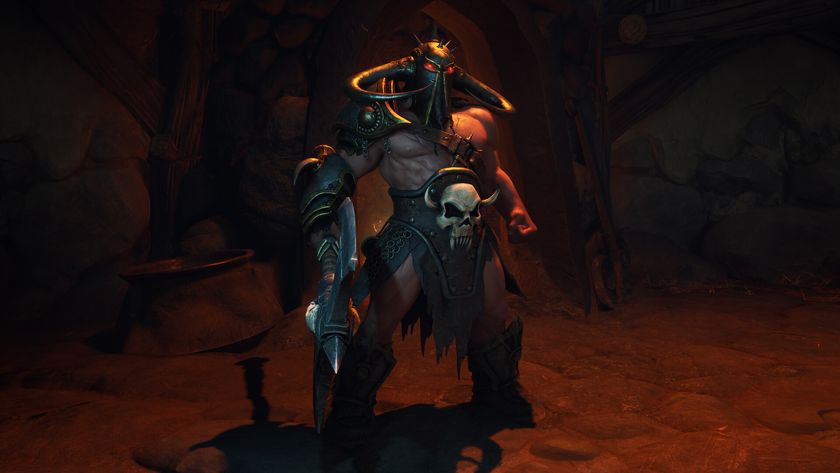
In the second half of 2017, my friends and I chased a new badge of honor: the chicken dinner. As PUBG shot to unprecedented (and still unmatched) levels of popularity on Steam, we scrambled to prove we were worthy of this new mega-hit, posting our successes on social media deep in the throes of this freshly re-emerging genre. A few months later, as Fortnite cemented the battle royale's relevance, the cycle repeated itself.
Much has been said about why the battle royale craze captured the collective imagination quite as it did, but for me it's always been about the blend of ability and tactics. It's no good being the best shot in the lobby if you're rushing into a gunfight that sees you sniped in the back from half a mile away. Couple that with the thrill of coming out on top of an ever-shrinking pool of players, the chances of victory growing tantalizingly larger with every new development, and it feels shocking that the formula had gone so underutilized before 2017. Since then, of course, the battle royale hype has waned, and it would be years before a game felt like it offered the same heart-in-mouth blend of tactics, tension, and ability… when I stumbled upon The Finals.
I hadn't planned to play The Finals. My FPS experience is based more around the slower, more methodical tactical shooters like Counter-Strike than in the faster, twitchier likes of Call of Duty that seemed to me to define this new project from former Battlefield devs. But as I heard my friends discussing tactics and last-ditch comebacks, I started to feel like there was more to the game than I'd originally thought. Within just a couple of games, I found I was right.
Royale with cash
The Finals twists a relatively standard class-based shooter around a capture-the-flag mechanic. You take a box of money, and run it to a 'Cashout Station' where you'll be tasked with defending it from all comers until you can bank it. It's here that The Finals' destruction tech often comes into play – while one team might think they're sitting pretty defending a rooftop cashout, another might me destroying the building's foundations to steal their prize in the chaos when the entire structure collapses. Mines, shields, turrets, and more accompany the frantic gunfire in the last, frenzied moments as teams push forward or repel oncoming players.
That might make The Finals sound like a brutish rush to the finish line, and in its initial Quick Play mode, that might be true. One cashbox goes to one cashout station, and the first team to bank two boxes is the winner. It wasn't long, however, before I graduated to tournament play, where eight or sixteen teams compete in a three-stage bracket, and The Finals puts a genius twist on its formula.
In tournaments, it's not about how many boxes you cash out, but how much money you have at the end of the game. The two top-scoring teams from each knockout round progress, but the rules are tightened; you only have so many lives in each round, so the decision about whether to respawn or get revived by a teammate for free is trickier. If your entire team is killed at once, you'll lose a hefty chunk of your cash – not a huge deal at the start of a game, but potentially devastating at the end – whereas prizes ramp up as more are cashed out, so a late-game overtime steal can send a team catapulting from dead last to first place in a close game. Moreover, two simultaneous vaults and cashouts means you have to make quick decisions about where to play in the time you have left.

"When every star aligns, I'm reminded of nothing so much as those early victory royales"
Surprisingly, it's those moments that remind me most of my battle royale days, because it's those moments in which The Finals' tactical gameplay shines. You might choose to run down the clock, cementing a first-place position by simply not giving players enough time to collect the cashbox you've hidden at the edge of the map. You might send a decoy, one of your team running in the direction of one cashout station to draw the enemy's attention as you charge in the direction of the other. You might simply get lucky, and wait as three teams fight over one station while you watch from afar, your prize banking without you even firing a shot.
Sign up to the 12DOVE Newsletter
Weekly digests, tales from the communities you love, and more
Eventually, whether by luck, judgment, or some good shooting, you might progress through an entire tournament bracket. Here, the cash rules revert to Quick Play – bank twice to win, no further questions asked. But even here, the decisions you made in previous rounds might come back to bite you, forcing you to play hyper-carefully with your life, or to camp out on top of enemy bodies to force them to use their (hopefully) dwindling lives. Here, if you're quick enough, you can choke the life out of the last remaining team, forcing them into ever more-desperate pushes. But even if you're not, a few quick kills might see you slip in to steal the winning cashbox with just a few seconds to spare. When every star aligns, and I finally find myself victorious at the end of a grueling, heart-pounding tournament run, I'm reminded of nothing so much as those early victory royales, and the blend of tactical and twitch gameplay that I thought no other genre would ever capture so successfully.

I'm GamesRadar's news editor, working with the team to deliver breaking news from across the industry. I started my journalistic career while getting my degree in English Literature at the University of Warwick, where I also worked as Games Editor on the student newspaper, The Boar. Since then, I've run the news sections at PCGamesN and Kotaku UK, and also regularly contributed to PC Gamer. As you might be able to tell, PC is my platform of choice, so you can regularly find me playing League of Legends or Steam's latest indie hit.
Most Popular









